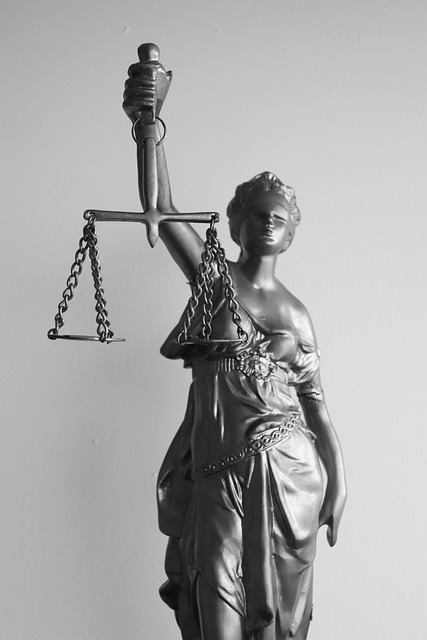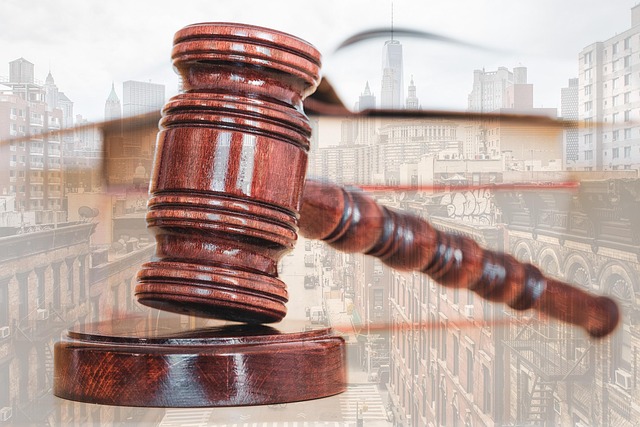Antitrust laws protect fair competition and consumers. The "Role of Evidence in Establishing Criminal Intent" is vital for proving antitrust violations like price-fixing and market division. Meticulous investigation using documents, communications, and financial records is required. This includes advanced analytics and expert testimonies to interpret evidence effectively. Both direct and circumstantial evidence are used to establish criminal intent in complex cases. Defendants must challenge the prosecution's evidence analysis with strong legal defenses.
“Antitrust violation cases are pivotal in maintaining fair market competition, with each case serving as a testament to the enforcement of antitrust laws. This article unravels the intricate process behind these legal battles, focusing on the crucial role of evidence in establishing criminal intent. From understanding the foundational principles of antitrust regulations to exploring strategic defenses, we delve into the key elements that shape these cases. By examining direct and circumstantial proof, this guide illuminates how relevant evidence is harnessed to prosecute and defend against antitrust charges.”
- Understanding Antitrust Laws and Their Purpose
- Gathering and Analyzing Relevant Evidence
- Establishing Criminal Intent Through Direct and Circumstantial Proof
- Common Types of Antitrust Violation Cases
- Legal Strategies for Defense Against Charges
Understanding Antitrust Laws and Their Purpose

Antitrust laws are designed to foster fair competition among businesses, prevent market dominance, and protect consumers from excessive pricing and limited choices. These regulations aim to maintain a competitive marketplace by promoting robust economic growth and ensuring the integrity of respective business ecosystems. Understanding these laws is crucial when examining antitrust violation cases, as it highlights the delicate balance between encouraging free-market principles and preventing anti-competitive practices.
The role of evidence in establishing criminal intent is paramount in such cases. Antitrust violations are often complex white collar and economic crimes that require meticulous investigation. Evidence plays a pivotal role in proving collusion, price-fixing, market division, or other anticoncurrent acts. By analyzing documents, communications, and financial records, prosecutors can unravel conspiracy theories and hold individuals and companies accountable for their actions. This process ensures the integrity of the market while also maintaining the trust of philanthropic and political communities that depend on fair and transparent business practices.
Gathering and Analyzing Relevant Evidence

In antitrust violation cases, the role of evidence is paramount in establishing criminal intent and proving guilt or innocence. The process begins with meticulous gathering of relevant documentation, communications, and records related to the alleged misconduct. This includes financial reports, business correspondence, strategic planning documents, and any digital traces left behind by the accused. For instance, email exchanges, text messages, and chat logs can serve as compelling pieces of evidence that illustrate collusive behavior between competitors.
Once gathered, evidence undergoes rigorous analysis by legal experts. This involves scrutinizing patterns, anomalies, and inconsistencies in data to build a robust case. Advanced analytics tools, expert witness testimonies, and industry-specific knowledge are leveraged to interpret the evidence effectively. In white collar defense cases, where accusations are complex and often subtle, the ability to present compelling evidence is crucial for successful outcomes at jury trials. The unprecedented track record of some legal teams in defending against antitrust violations underscores the importance of thorough evidence analysis in navigating these intricate legal battles.
Establishing Criminal Intent Through Direct and Circumstantial Proof

Establishing criminal intent is a pivotal aspect of antitrust violation cases, where both direct and circumstantial evidence play significant roles. Direct proof involves clear and concrete evidence that directly demonstrates the defendant’s intention to violate antitrust laws. This could include explicit statements or actions indicating a conscious decision to suppress competition. For instance, an executive’s admission of aiming to eliminate rivals in a specific market can serve as definitive evidence of criminal intent.
On the other hand, circumstantial evidence relies on inferences drawn from a pattern of behavior or relevant facts and circumstances. This includes analyzing a company’s actions, such as aggressive pricing strategies, exclusive dealing agreements, or mergers that reduce market competition. While circumstantial proof might not directly show intent, it can strongly suggest that antitrust laws have been deliberately flouted, especially when considered alongside other evidence. The role of evidence in establishing criminal intent is crucial for both corporate and individual clients, as it helps navigate the complexities of respective business landscapes and ensures accountability within the philanthropic and political communities.
Common Types of Antitrust Violation Cases

Antitrust violation cases encompass a range of illegal practices aimed at stifling competition and enhancing market dominance. One common type involves price-fixing, where companies collude to set prices, eliminating competitive bidding. This practice is a direct violation of antitrust laws, as it hinders consumers from obtaining the best value for their money. Another prevalent case is market division, where businesses agree to allocate customers or territories among themselves, preventing competition within specific segments.
The role of evidence in establishing criminal intent is paramount in antitrust violation cases. Courts rely on concrete proof, such as recorded conversations, written agreements, and financial records, to demonstrate the existence of a conspiracy. In many instances, white-collar defense strategies focus on discrediting this evidence or arguing that the actions were not intended to violate antitrust laws. However, successful prosecutions often lead to significant penalties, including substantial fines and even complete dismissal of all charges for companies that cooperate with investigations.
Legal Strategies for Defense Against Charges

Facing antitrust violation charges can be a complex and daunting task, but a robust legal strategy can significantly influence the outcome. One of the key aspects in defense is to challenge the prosecution’s ability to establish criminal intent. The role of evidence is pivotal here; defendants must present compelling documentation and testimony to prove their actions were not malicious or in violation of antitrust laws. This involves scrutinizing every stage of the investigative and enforcement process, ensuring that procedures were followed correctly and no rights were infringed upon.
A successful defense strategy often leverages the unique circumstances and impact on philanthropic and political communities. By showcasing positive outcomes and contributions to society, defendants can argue that their actions benefited these communities, which may mitigate potential penalties. Achieving extraordinary results in court requires a thorough understanding of antitrust laws, meticulous preparation, and a strategic approach that highlights the nuances of each case.
In navigating complex antitrust violation cases, understanding the intricate interplay between legal frameworks and evidentiary analysis is paramount. The role of evidence in establishing criminal intent, both direct and circumstantial, serves as a linchpin for successful prosecution and defense strategies alike. By meticulously gathering and interpreting relevant data, legal professionals can build robust cases that uphold fair competition while ensuring justice is served. This comprehensive guide offers valuable insights into the various types of antitrust violations and corresponding defensive tactics, empowering practitioners to effectively navigate this dynamic legal landscape.






